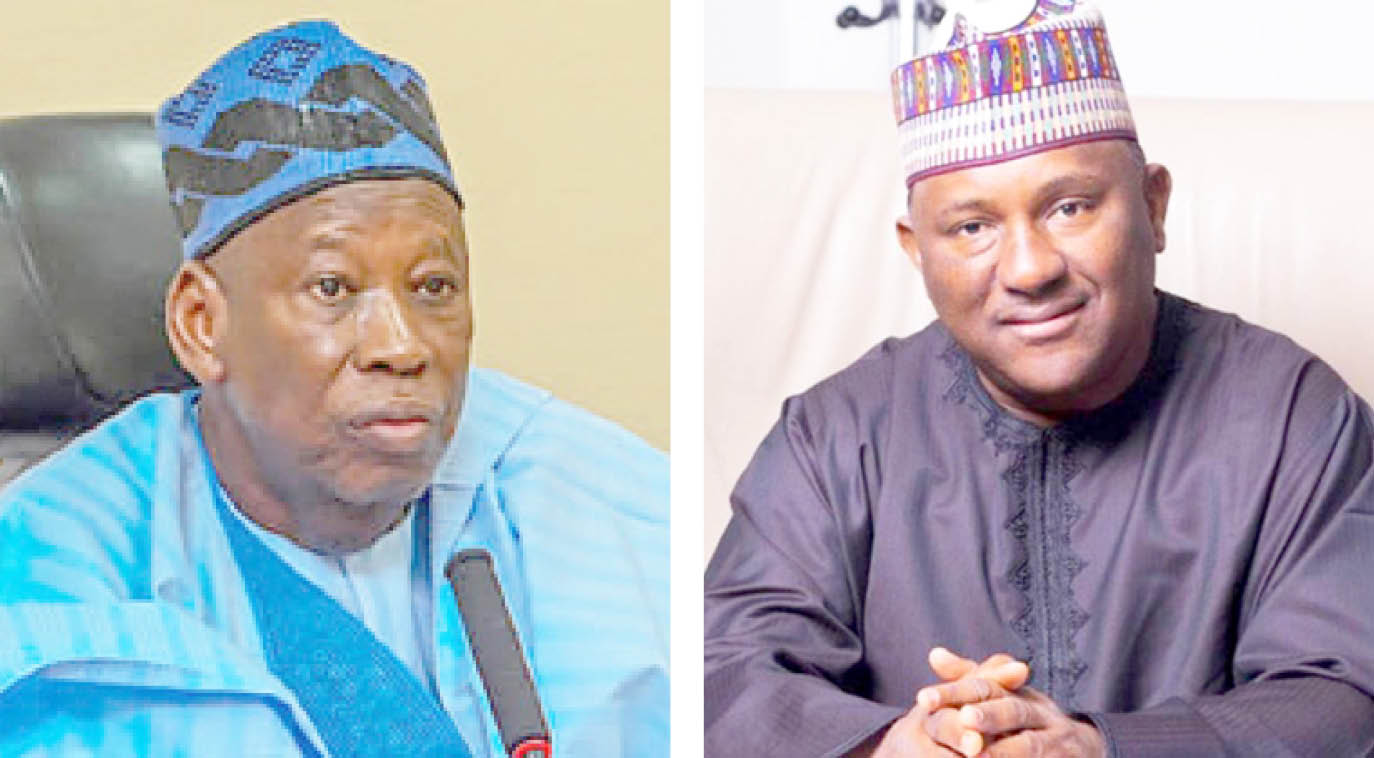Critical reactions have continued to trail the controversial list of the All Progressives Congress (APC) Standing Committees, bringing back to the fore the ruling party’s past appointment of bigwigs into sensitive positions without prior consultations, Daily Trust on Sunday reports.
The party’s National Working Committee (NWC) had constituted standing committees on publicity, establishment, inter-governmental, finance and conflict and reconciliation to contribute to smooth running of the party.
But while many had expressed reservations at the composition of the list, the Chairman of BUA Group, Abdul Samad Rabiu, who was listed as member of the finance committee made it obvious that the party did not carry out the usual consultations before including names of personalities into the group, especially those not known to be card-carrying members of the party.
Like Rabiu, another Kano-based business mogul, A.A. Rano, who has never publicly identified with any political party was included in the committee. While he has not publicly denounced his inclusion, reports said he might have also covertly rejected the appointment.
SSCE: FG to reposition NECO, others for optimal performance
Election judgement: APC storms Plateau to tackle ‘hindrance’ to legislators’ resumption
The BUA Group had in a statement released to convey Rabiu’s rejection of the appointment said the business mogul was not consulted by the ruling party before his name was listed, explaining that he has “consistently adopted an apolitical stance over the years” and would not compromise his status.
“With respect to this, we wish to inform the publishers, our partners, stakeholders, and the general public that Mr. Rabiu has decided to graciously decline the nomination/appointment. This decision is made in light of the fact that he was not previously consulted regarding his inclusion in the list and his inability to commit time due to his demanding schedule,” the statement read in part.
Daily Trust on Sunday findings revealed that like Rabiu, many other stakeholders were not comfortable with their appointments and withdrew their membership silently, while others protested lack of inclusion, thus, compelling the party to withdraw the list and postpone the inauguration to enable it have a better deal.
It was also gathered that internal protests had rocked the composition of the committees sequel to lack of consultations and inclusion of some key players in the party.
A top party source, who asked not to be identified, revealed that “There was internal protests. So, the list has to be rejigged, republished before a new date is set for inauguration.”
Pundits said this trend of appointment without consultation has gained traction not only in the administration of the ruling party, but also its government appointments at the federal level. Recall that in December 2017, there was outrage when the first president on the APC platform, Muhammadu Buhari, appointed six dead persons into boards of federal government agencies before he later ordered for a review of the list.
They said if adequate consultations and contacts were made, such a blunder wouldn’t have been committed and the country’s image wouldn’t have been dragged in the mud.
Nomination of PDP members into APC committees
Some stalwarts of the party also said the most worrisome development is when the top echelon of the APC finds it worthy to even list key members of the leading opposition Peoples Democratic Party (PDP) into its committees, knowingly or unknowingly, without considering the grave implications it portends for the future of the party.
Recall that prior to the November 11 off-season governorship elections in Kogi, Bayelsa and Imo States, the APC listed Minister of the FCT, Nyesom Wike, as a member of its campaign council.
But Wike declined the offer on grounds that he was not a member of the party, but that of the leading opposition Peoples Democratic Party (PDP). He also contended that he was not consulted before the appointment.
Following the backlash, the APC in a statement by its National Publicity Secretary, Barr. Felix Morka, made a U-turn, saying the list was not an official document of the party and should be disregarded.
Before the Wike situation, the ruling party on October 19, 2022, named a PDP chieftain and Senator representing Enugu East, Chimaroke Nnamani, into its presidential campaign council ahead of the 2023 election.
Nnamani – a former governor of Enugu State, was number 350 on the 422-member campaign council list, as member of the local government directorate. Shortly after the list went viral in the media, the party again made a U-turn and dropped his name.
Backlash trails party’s decisions
Meanwhile, many party leaders and chieftains as well as political analysts have questioned why such appointments should be done without prior consultations.
A former deputy national publicity secretary of the PDP, who is now a chieftain in the ruling party, Barr. Abdullahi Jalo, told Daily Trust on Sunday in a telephone interview that some powerful elements in the APC were behind the trend, hence nothing substantial has been done to serve as deterrent.
He said, “There are some powerful elements at the APC national headquarters who are not allowing things to work well within the leadership. These people are very strong and they feel whether they consult people or not, they can do what they want. But this will not work because people are becoming more enlightened.
“You must consult people before appointing them because people have things to do beside the politicking. So, the national chairman should let the powerful forces in the party know that it won’t be business as usual. You can’t just sit down because you are the ruling party and say you can do whatever you like, it can’t work.”
Similarly, an elder statesman, Chief Chekwas Okorie, said the only civilised thing to do was to get somebody’s consent before he or she is appointed into anything.
He said, “Appointment without consultation has repeated itself in a very embarrassing manner. For instance, the BUA Group Chairman declined his nomination that he wasn’t consulted. He gave good reasons. His business has grown to such a level that it would have been most unwise for him to get involved in partisan politics. People with his standing all over the world support parties and other noble courses without being partisan.
“So, he must have felt thoroughly embarrassed to have been brought into that kind of arrangement. There are some international partners that once you operate at that level, they will get worried to continue to relate with you; if they think that you are politically exposed. So, that is what businessmen at that level want to avoid. It has multiple implications on their businesses.”
On his part, Abubakar Kari, a professor of political sociology at the University of Abuja, told Daily Trust on Sunday that appointing people into key committees or positions without prior contact shows lack of diligence and seriousness.
He said, “I think it is a successive thing. Nigerian governments have done that right from the era of the military. The Buhari administration was notorious for that. It even appointed people who were dead already. So, it is a Nigerian thing and it’s really not good.
“It shows lack of diligence, it shows lack of seriousness, sense of responsibility and purpose because I don’t think it is right or proper to simply announce someone’s appointment without prior consultations.
“The fact that it has continued for a long time is a very notorious carry-over of the military mentality. So, leaders should be more serious; they should be more diligent. They should even honour the people they are appointing by at least, contacting them to find out from them whether they really want to serve.”

 Join Daily Trust WhatsApp Community For Quick Access To News and Happenings Around You.
Join Daily Trust WhatsApp Community For Quick Access To News and Happenings Around You.


